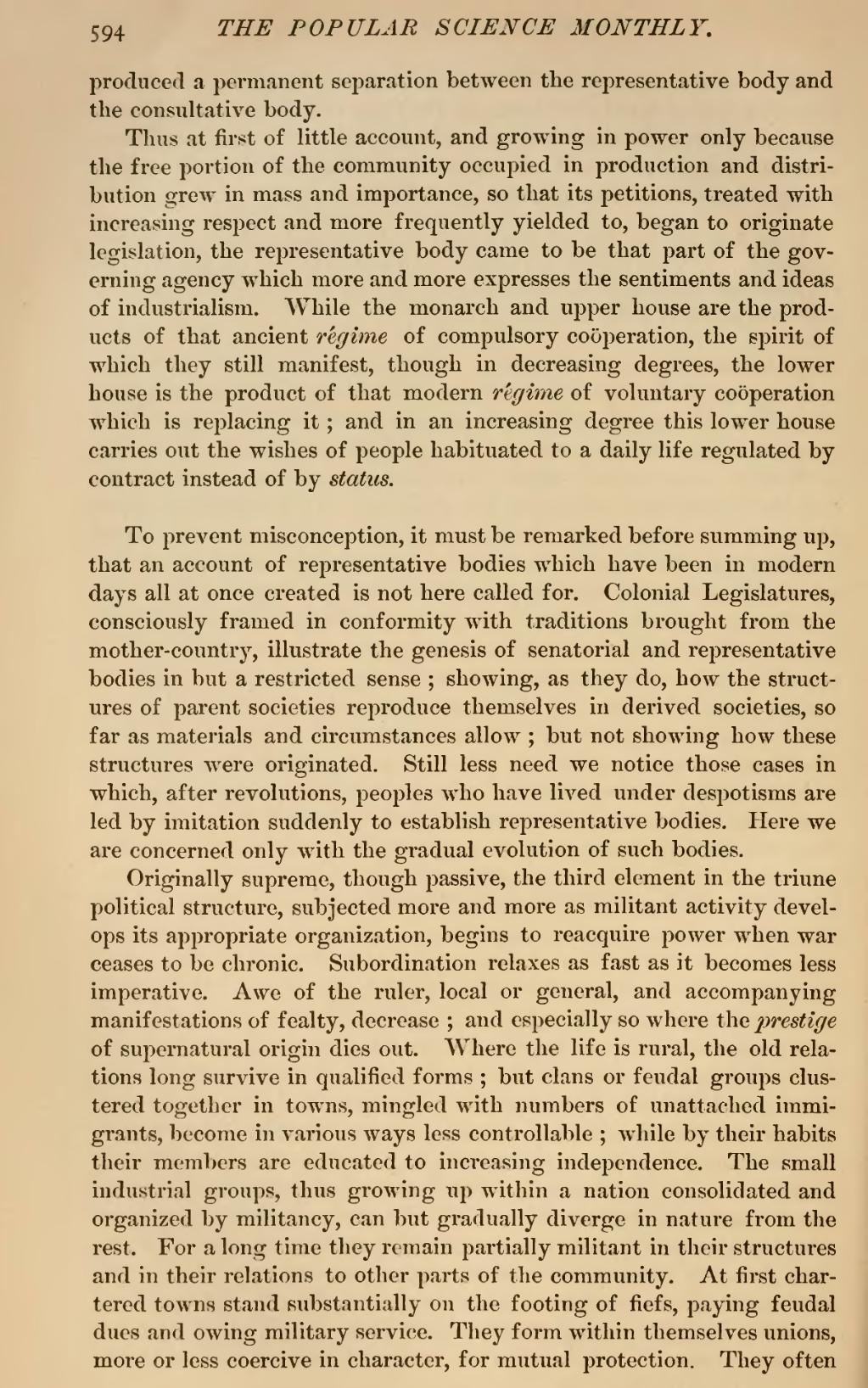produced a permanent separation between the representative body and the consultative body.
Thus at first of little account, and growing in power only because the free portion of the community occupied in production and distribution grew in mass and importance, so that its petitions, treated with increasing respect and more frequently yielded to, began to originate legislation, the representative body came to be that part of the governing agency which more and more expresses the sentiments and ideas of industrialism. While the monarch and upper house are the products of that ancient régime of compulsory coöperation, the spirit of which they still manifest, though in decreasing degrees, the lower house is the product of that modern régime of voluntary coöperation which is replacing it; and in an increasing degree this lower house carries out the wishes of people habituated to a daily life regulated by contract instead of by status.
To prevent misconception, it must be remarked before summing up, that an account of representative bodies which have been in modern days all at once created is not here called for. Colonial Legislatures, consciously framed in conformity with traditions brought from the mother-country, illustrate the genesis of senatorial and representative bodies in but a restricted sense; showing, as they do, how the structures of parent societies reproduce themselves in derived societies, so far as materials and circumstances allow; but not showing how these structures were originated. Still less need we notice those cases in which, after revolutions, peoples who have lived under despotisms are led by imitation suddenly to establish representative bodies. Here we are concerned only with the gradual evolution of such bodies.
Originally supreme, though passive, the third element in the triune political structure, subjected more and more as militant activity develops its appropriate organization, begins to reacquire power when war ceases to be chronic. Subordination relaxes as fast as it becomes less imperative. Awe of the ruler, local or general, and accompanying manifestations of fealty, decrease; and especially so where the prestige of supernatural origin dies out. Where the life is rural, the old relations long survive in qualified forms; but clans or feudal groups clustered together in towns, mingled with numbers of unattached immigrants, become in various ways less controllable; while by their habits their members are educated to increasing independence. The small industrial groups, thus growing up within a nation consolidated and organized by militancy, can but gradually diverge in nature from the rest. For a long time they remain partially militant in their structures and in their relations to other parts of the community. At first chartered towns stand substantially on the footing of fiefs, paying feudal dues and owing military service. They form within themselves unions, more or less coercive in character, for mutual protection. They often

